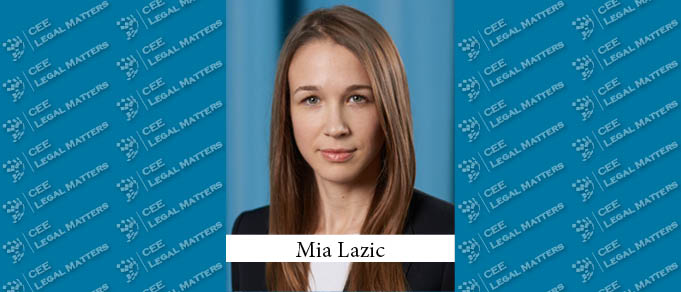In the wake of the war in Ukraine and Russia shutting down the gas supply to Europe, Croatia has been forced to take the upcoming potential energy crisis seriously, with several government measures and packages being implemented, according to Savoric & Partners Partner Mia Lazic.
“The main topic in Croatia, much like in most EU countries right now, is energy,” Lazic begins. “The government has approved a package, which will take effect in October, that caps the prices of electricity for households, businesses, and institutions,” Lazic reports. “The cap-off for businesses will vary depending on their consumption, but the average cap price will be EUR 230 for megawatt per hour, which is significantly lower than the current EUR 450 European median,” she adds. The temporary energy price-fix package will remain in place until the spring of 2023.
Furthermore, Lazic reports that the “VAT levels for natural gas have been lowered and certain subsidies for households and small businesses have been put in place.” These measures, too, are to remain in place until the spring of 2023. “Additionally, it is worth noting that the Croatian national gas company, INA, has been mandated to increase gas production by 10%, which will, in turn, be distributed by the Croatian national electrical company to households and other selected categories.” Lazic reports that this measure, also in place until next spring, is part of the Croatian government’s overall efforts to exert more control over energy distribution.
Moreover, Lazic reports that the Croatian Prime Minister has announced a “proposal for a special tax targeting those companies that profited the most during the crisis.” Whatsmore, Lazic reports that the overall interest-raising trend that is present in the Eurozone has not been as steep in Croatia. “Our interest rate levels have been quite high as they were, so there hasn’t really been a major hike in that regard. Of course, some leveling-off is expected when Croatia joins the Eurozone in 2023,” she reports, but adds that it is still not expected that interest rates would pose a massive issue. “Most consumer loans in Croatia, some 60% of them, are already fixed-interest ones, so volatility is not expected in that regard.”
Finally, Lazic provides an insight into the ongoing sale of Sberbank’s 42.51% stake in Fortenova, a major Croatian food producer and retailer. “Fortenova is a very important piece of our domestic economy – having this in mind, it has been a problem how near it came to being covered by EU sanctions, given its ownership structure,” she explains. “There were talks that Indotek would buy out Sberbank’s shares, but this did not come to pass. The latest rumors are that Fortenova will attempt to buy out the shares itself, and that even some Croatian pension funds could be interested; however, there are still problems.”
Lazic explains that, in order for the sale to take place, a decision should be made at the shareholders’ meeting with 66% of all shareholders, meaning that Sberbank would have to vote in favor of it – which the sanctions have so far prevented. “Due to sanctions, Sberbank was prevented from sending its representatives and voting at the two shareholders’ meetings in the Netherlands that tackled this matter. There is a third assembly, likely to take place in the following few months, with the same agenda – the key difference this time will be that the voting requirements, according to Fortenova’s corporate documents, will shift so that 75% of all present votes will be required in order for sale to take place, making the Energia Naturalis group the key decision maker in such a scenario.” Lazic concludes by explaining this means it is likely that Sberbank's stake will get sold off, thus removing Fortenova from any immediate danger of being sanctioned.

















